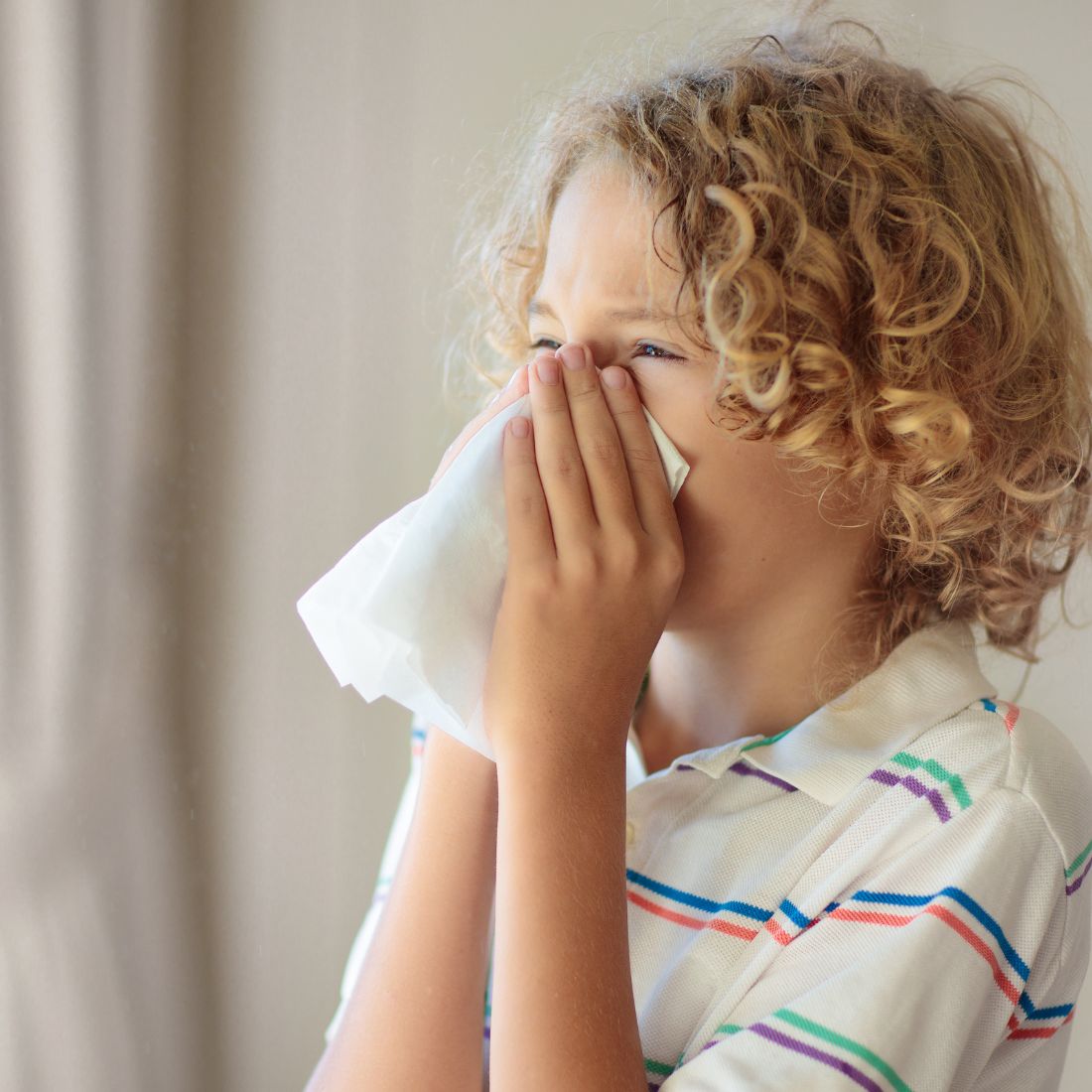By Dr. Peter Klapper Ph.D.
As the seasons change, so do the challenges for children prone to seasonal allergies. From sneezing fits to itchy eyes, seasonal allergies can disrupt a child's daily routine and impact their overall well-being. With an estimated 7.1 million kids in the US experiencing environmental allergies, this blog post delves into the triggers and signs of seasonal allergies in children, offering practical advice for symptom management and relief.
Understanding Seasonal Allergies in Kids:
Seasonal allergies, also known as allergic rhinitis or hay fever, occur when a child's immune system overreacts to allergens such as pollen, mold, or grass. Common symptoms include sneezing, congestion, runny nose, itchy eyes, and coughing. While seasonal allergies can occur at any age, they often develop in childhood and may persist into adulthood.
Identifying Seasonal Allergy Triggers:
Identifying the specific triggers of your child's seasonal allergies is the first step in managing their symptoms. Keep track of when and where your child's symptoms occur, noting any patterns that may indicate exposure to allergens such as pollen or mold. Common triggers include tree pollen in spring, grass pollen in summer, and weed pollen in fall.
5 Tips for Managing Seasonal Allergies in Kids:
1. Check Your Local Pollen Counts:
Stay ahead of the pollen game by checking local pollen counts regularly. Then, schedule outdoor activities during low-pollen times, like early mornings or late evenings, for a sneeze-free adventure.
2 Minimize Exposure:
Keep those allergens at bay by playing it smart! When pollen levels are high, especially on windy days, keep those windows shut tight. Then, give your indoor air a boost by running the air conditioning with HEPA filters to keep pollen levels down.
3. Practice Good Hygiene:
Get your little one in the habit of washing their hands often, especially after outdoor adventures. Showering and changing clothes after outdoor fun will also help banish pesky pollen and allergens from their skin and hair.
4. Use Allergy Medications:
When it comes to helping your child with allergy symptoms, you've got options! There are over-the-counter antihistamines, nasal sprays, and eye drops to choose from. For a gentler approach, consider natural remedies such as Forces of Natures' Allergy Kids to avoid unwanted side effects. Remember to consult your child's pediatrician to select the most suitable medication based on their age and symptoms.
3. Consider Allergy Immunotherapy: For children struggling with challenging allergies, Allergy Kids sublingual immunotherapy (allergy drops) from Forces of Nature, boasting a delightful organic orange flavor, could be the perfect solution. These treatments work by gently training your child's immune system to be less bothered by allergies over time, making those sneezy days a thing of the past!
Promoting Overall Wellness:
In addition to managing allergy symptoms, prioritize your child's overall health and well-being. Ensure they get plenty of rest, eat a balanced diet rich in fruits and vegetables, and stay hydrated. Regular exercise can also help boost their immune system and alleviate allergy symptoms.
While seasonal allergies can bother kids, they can be skillfully managed with proper strategies and treatments. By pinpointing triggers, reducing exposure to allergens, maintaining good hygiene, using suitable medications, and prioritizing overall well-being, you can help your child breathe easy and enjoy each season to the fullest.




